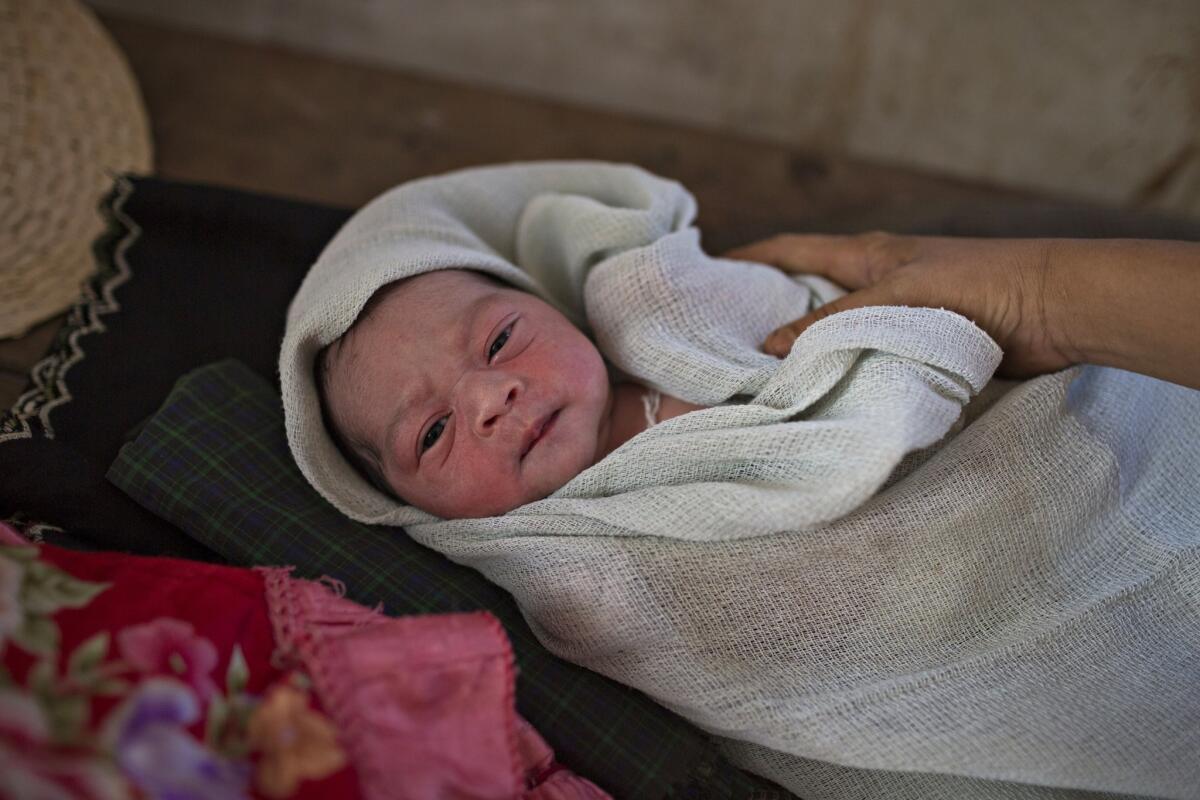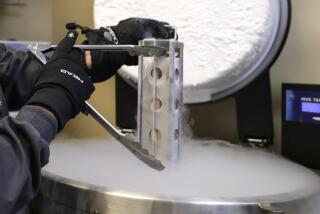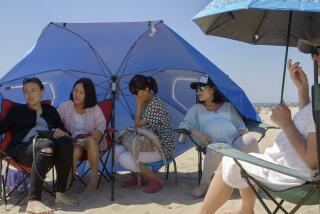Opinion: Giving birth in the wild? Sorry, Lifetime, it’s a bad idea.

Last week, Lifetime announced plans to air a reality show about mothers giving birth in the woods alone — without a doctor. The premise for “Born in the Wild,” according to Lifetime, is based on a YouTube video of an unassisted birth in a forest that has gotten more than 23 million views. Lifetime says no one will be in danger. The show will not allow first-time mothers, and all of those in the show will be healthy and have low-risk pregnancies. A trained emergency professional will also be on site. “Our presence at these births is going to make them far safer than if they were doing it on their own,” said Lifetime’s senior VP and head of nonfiction programming, Eli Lehrer.
Unassisted or “free birth” (when a mother makes the decision to have a baby without a medical professional to assist) is certainly a fringe segment of the natural birth movement. Laura Shanley, an unassisted birth advocate, says that childbirth is “inherently safe and relatively painless.” She dismisses medical authority and procedure and says that “women will understand that birth is only dangerous and painful for those who believe it is.”
So while some women may decide to forgo a doctor or midwife for religious or philosophical reasons, others do it because they are unhappy with the medical establishment’s treatment of birth. As Amy Wright Glen writes in a philly.com article about the subject: “A growing number of women are turning to unassisted childbirth as a result of feeling powerless and mistreated during a previous birth experience. They have lost faith in American obstetrics.”
I understand why some women are angry about how birth is treated in the United States. Between high rates of cesarean sections and how many women feel that they aren’t allowed or empowered to be a part of their birth process, it’s no wonder women are seeking alternatives to hospital birth. The overuse of C-sections, for one, has been a large player in the brewing backlash against birthing in hospitals. About one-third of women deliver their babies via C-section, even though the procedure has not improved the health of mothers or babies.
The adverse reaction against what natural birth advocates call the “overmedicalization” of birth has women taking birth matters into their own hands. Although the American Congress of Obstetricians and Gynecologists cautions against unassisted home birth, the practice is becoming more common. This spring the CDC released data that show that the number of out-of-hospital births has been slowly on the rise since 2004. Even though the numbers are small, they show that women are looking for alternatives to delivering their babies in hospitals.
However, it’s not just the fear of being subjected to unnecessary medical procedures that is driving the turn away from hospitals, but the desire to feel empowered during birth. In her piece “Why I chose a home birth” in the Washington Post, Susan Heavey explained that the hospital birth of her first child was a “frustrating experience filled with dismissive staff.” She describes how a receptionist sent her to the waiting room even though she was ready to push, nurses who told her to “ ‘hold it in’ as I waited an hour for a doctor,” and “a doctor who never even introduced himself.” When she delivered at home, she got more than a healthy baby, she got “an empowering birth that respected me and my baby.”
Doctors say a planned home birth with a midwife present is not as safe as delivering in a hospital, but it is certainly less risky than what the women in “Born in the Wild” will be doing. While birth can be an incredible experience of how life is brought into the world, it can also be deadly.
Janet Fraser’s infant daughter’s death should serve as a cautionary tale. Fraser, a leading advocate of free-birthing, lost her daughter delivering her at home without medical assistance. The coroners investigation found that the unassisted home birth of Fraser’s daughter, during which she was strangled by her umbilical cord, was likely the reason the infant suffocated to death.
Birth can be dangerous. Even with our many medical advances, the United States has, according to the World Bank, a maternal mortality rate of 28 deaths per 100,000 live births, a number that is significantly higher than other industrialized nations. While unassisted birth advocates may say that birth is inherently safe, it can still be dangerous for both the mother and baby, even with medical assistance standing by. To willingly flout that and the medical care that could safe lives for the sake of the ultimate natural birth is not just careless but callous.
“Born in the Wild” is certainly an example of the extreme lengths women are willing to go to feel in control of how their babies are delivered. But I hope that rather than it being dismissed as a wacky act of a fringe group, it sounds an alarm to the birth community at large. A growing number of women are genuinely afraid of delivering in hospitals, and that’s cause for concern for not just doctors but natural birth advocates as well.
What does it say about our attitudes toward birth when women feel safer delivering in a forest than in a hospital?
Susan Rohwer is a freelance journalist. Follow her on Twitter @susanrohwer.
More to Read
A cure for the common opinion
Get thought-provoking perspectives with our weekly newsletter.
You may occasionally receive promotional content from the Los Angeles Times.






